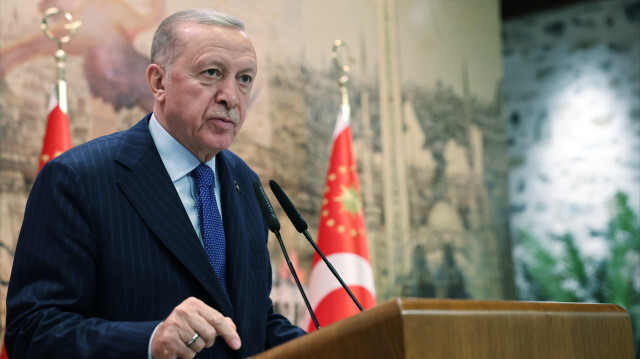#Lithuanias #greatest #victories #cunning #German #plan #foiled
– The Tsarist Russian Empire occupied Lithuania for more than a century. What circumstances must have arisen that the Lithuanians in 1918 February 16 dare to declare independence?
– I would single out two main two factors that opened the way to independence. The first one can be called a pan-European phenomenon, which in our historiography is known by the name of national revival or, more popularly, national movement. This is the so-called nation-building process, when all people join politics. Also in 1905 the revolution in Russia, as well as the recovery of the press in Lithuania, when it reaches more people, had a great influence on this whole process.
The culmination of the national revival in Lithuania would be in 1905. the Grand Seimas of Lithuania. Only in this case, since the Russian Empire was still powerful, the Lithuanians did not dare to speak openly about independence. However, it is clearly stated there that Lithuanians will seek autonomy.
Some actors of the period of national revival, for example, Kazys Grinius, already before the First World War, published articles in which they talked about the future independence of Lithuania. So, it can be said that the national revival has shaped that program and what its goals will be. The short-term goal was autonomy, and the long-term goal was independence. Therefore, the will of the nation was already one of the fundamental things when it was aimed to restore independence.
On the other hand, wishes are wishes, but real opportunities arise when the state of international politics or the geopolitical field changes. In this case, the First World War opened up that opportunity. It should only be borne in mind that when the First World War began, the opinion spread in the public space that the war would be short and victorious.
In this case, Lithuanian actors also adapted to this discourse, so it was expected that in 1914 Russia will win the war. However, in 1914 all warring sides competed for influence over the Poles, as this was a much larger geopolitical factor. In this case, the Russians promised to create a Polish state, so the Lithuanians felt the danger that some Lithuanian lands and, first of all, Vilnius region could be incorporated into that future Polish state. So, the Lithuanians needed to act urgently.
In this case, we have, so to speak, a pro-Russian document, which we call the Amber Declaration. It was created by some Lithuanian actors, including Jonas Basanavičius. In the declaration, it was mentioned that all Lithuanian lands, after defeating Russia, should be united into one unit like an amber necklace. This was an attempt to defend against possible Polish aspirations. On the one hand, the Amber Declaration shows a pro-Russian orientation, but on the other hand, Lithuanians are already trying to further develop that program of statehood. Thus, initially the aim was to achieve autonomy and unification of all Lithuanian lands, but in the future it was hoped that it would be possible to move further. True, there was no talk of independence. Even in 1915 Mykolas Yanushkevičius, a member of the Russian Duma from Lithuania, loudly demanded only autonomy.
Another impetus was the German occupation from 1915. We can see how the Lithuanian political elite learned diplomacy. Those who remained in occupied Lithuania changed their orientation and linked their hopes for the restoration of statehood to German support. Of course, at first there were not many hopes, because even though they occupied Lithuania, the Germans were our neighbors for many centuries, but they did not know our real situation. They called Vilnius the pearl of Polish culture. However, after clarifying the situation, he decided to grant some self-government to the Lithuanians, because he hoped that the Lithuanians could be as loyal subjects of the future empire as their compatriots in East Prussia. This situation continued in 1915 and 1916.
However, the so-called Lithuanian question was even more internationalized by the situation in the West. As the war dragged on and the Germans found it difficult to fight on two fronts, they tried to probe the possibility of a separate peace with Russia. Unfortunately, this plan failed for the Germans and because of this, especially in the military leadership, a tendency emerged that the territory that occupied it, as well as most of the Lithuanian lands, should be annexed to the Reich in one way or another. That idea was very prevalent among the military.
It should be mentioned that the representatives of the military command of the Eastern Front, namely General Ludendorff and Marshal Hindenburg, in 1916 become the so-called third military command, in fact, the commanders of the German forces. Having stayed in Lithuanian lands, they popularized this idea already in various German government structures. Such an example could be from Ludendorff’s memoirs, where he said how wonderful the fields of Lithuania are, but how they need the hardworking hands of the Germans. This shows that they wanted to annex those territories.
But why couldn’t the Germans do it simply? This is because in the West already in 1916 the idea of the so-called right of peoples to self-determination is becoming popular. It was popularized by the representative of American President Woodrow Wilson, Colonel House (Edward Mandell House, editor p.), who traveled around Europe. It is known that this news also reached the Germans. Therefore, if they wanted to annex these territories, they would have to do it cunningly, so they had to cover themselves with the right of peoples to self-determination. In this way, the concept of how the Germans could do it is born. It must have seemed that the inhabitants of those lands themselves announced their secession – for example, the Lithuanians from Russia, and voluntarily joined Germany. Due to this supposedly cunning German concept and, one might say, treachery, opportunities arose to convene a Lithuanian conference in 1917, where an advisory body was to be elected.
At that time, the Germans envisioned a regional council, and according to their plan, a simple scheme was to be implemented: this council meets, announces that it is separating from the former sovereign, that is, from Russia, and joining Germany. Everything is very beautiful and seems to take place according to the principle of self-determination of nations. During the peace negotiations, the German Entente would be shown a document that they could annex the Lithuanians.
In this case, the powerful German diplomatic and military machine, if we look back to 1917, planned to welcome Lithuania so nicely. If we were to look at it from Berlin’s point of view, there were no big prospects for Lithuania. However, I would dare to say that it was one of the greatest victories of the Lithuanians, since, having no diplomatic traditions (19 out of 20 members of the Lithuanian Council had obtained higher education, but there was not a single professional diplomat among them), they practically destroyed the German scheme.
At first, it seemed to the Germans that everything was going according to plan, as it was signed on December 11. Act. In one part of the act, it was noted that Lithuanians were to disconnect from all ties with other states of which they were dependent. This means that it first disconnects from Russia, but at the same time from Poland. In the second part, it was announced that it was united in eternal ties with Germany.
When the Lithuanians signed this document, the Lithuanian Council was not interesting to the Germans. The problem is that some Lithuanian council members did not agree with this course of events. The council split and the left announced that on December 11 the act violates the resolutions of the Vilnius conference. Two important points were decided at this conference: firstly, that Lithuania must be an independent state with Vilnius, and its constitution must be decided by the Constituent Seimas. December 11 such a resolution was not visible in the deed.
So, because of this, the soldiers left the council, so the authority of the Lithuanian council immediately fell and the conservative or right-wing group, seeking a compromise, negotiated with the left. Everyone gathered again and accepted on February 16. an act in which we already see a qualitative change. In the wording of the act, there were no longer eternal state ties with Germany, but Lithuania’s independence was declared.
In this way, that German plan was thwarted by the Lithuanians. in 1919 avg. Ludvikas Zimerlė, who was the governor of this region until 1918. November, wrote in his memorandum that everything in Lithuania was not as planned. The Germans really did not plan an independent Lithuania.
I think this is the great significance of the act of February 16, that it was possible to outsmart the powerful German diplomatic and military machine.
– Two years of independence wars followed. This probably shows that it was not so easy to implement it in practice after the declaration of independence?
– Yes, it is also a very important thing that the act of February 16 was a declaration, and at the time when independence was declared, that issue of “Lietuvos Aido” with this message was confiscated by the Germans. But basically, the idea of independence, that Lithuania is independent, spread both through transcripts and word of mouth. I would say that this thing was preparing the Lithuanian nation for the fight against the occupier.
Real opportunities to move to the establishment and implementation of the state February 16th imperative appeared in the fall, when the German occupation regime began to fall apart in Lithuania. It is true, as you rightly mentioned, in 1918 help and in 1919 Ave. are critical moments for the state of Lithuania. The Germans began a sharp retreat in 1918. in November, but until then did not allow the Lithuanians to create any state authorities, including the army. It was done very quickly and hastily.
However, let’s take into account how the first factor worked, ie the desire of the Lithuanian people to live in an independent state. In other words, even in such difficult conditions in 1918 December and especially in 1919 January Ave. The Śležević government, the second cabinet, announced the mobilization of officers, and then of soldiers. Everyone was firmly determined to fight for Lithuania’s independence and this was an important incentive to join the Lithuanian army.
Basically, the idea of independence, that Lithuania is independent, spread both through transcripts and word of mouth. I would say that this thing was preparing the Lithuanian nation for the fight against the occupier.
A. Grodis.
It is very important to emphasize that the battle was first won on the diplomatic front when the Act of February 16 was announced, but it had to be implemented in practice as well. That’s when the struggle for independence began. Of course, they were difficult, but they managed to preserve the declared statehood.
Another important thing, as I have already mentioned, is that the Germans were also outwitted, but due to certain geopolitical calculations, they hoped to maintain their influence in Lithuania. Also, due to strategic interest, Germany did not want since 1918. autumn at its borders to spend the moving Bolsheviks. As a result, the Germans stabilized the front in Lithuania, their army stopped retreating, and Lithuania had a real chance to exist.
The first independence struggles are such that Germans and Lithuanians fought together against the Bolsheviks. I would say that this is another Lithuanian diplomatic victory. Lithuanians received a financial loan from the Germans to establish state institutions and pay salaries to the military, and another victory on the diplomatic front. Despite the painful German occupation until 1919. medium, the same Germans, who previously wanted to join it, helped to stabilize the international situation of Lithuania.
From the middle of 1919, when there was an opportunity to contact the West and the Entente countries, the Lithuanians immediately started looking for their support, first of all, Great Britain. It is true that relations with the Germans worsened as a result, but the independence of Lithuania was preserved and it was possible to further strengthen it.
– Let’s go back a little further and look deeper, what was Lithuanian society like in general, which experienced the occupation of Tsarist Russia? How did the idea of liberation arise in the minds of ordinary Lithuanians?
– It was really a pan-European thing and many former fringes of the Russian Empire, where there was not even strict Russification, sought independence. In my opinion, this is a long-term, multi-decade national revival activity. Since the abolition of the press ban in 1904 everything changed rapidly and there were many events, but if we were to talk about the prevailing mood in society, it was not for nothing that the Vilnius Conference emphasized that the constitution of the Lithuanian state would be determined by the Constituent Seimas.
At least from the memoirs of, for example, Mykolos Krupavičius, who returned to Lithuania from Russia in 1918, he noticed that it was necessary to fight very hard so that Lithuanians would be in favor of a democratic republic. According to him, there were many supporters of the monarchy. It is also possible to mention his very beautiful quote, when he traveled around Lithuania and tried to convince that a president was needed, and ordinary Lithuanians shot him back that who would want to listen to a man with whom he used to herd pigs. It was thought that it would be better to take some Russian or German prince.
Because for a long time there was monarchical power in the country, despite the fact that foreigners, but the tradition was that power was given by God. However, mostly due to the activities of political parties, it was finally decided that Lithuania became a democratic republic. Of course, people’s awareness did not change overnight.
– What influence did the country’s economic situation have on the restoration of independence?
– Actually, the economy was also one of the foundational things, so we cannot forget the economic factor. First of all, we can relate that before independence, a small part of Lithuania’s territory was concentrated in the hands of landlords of Polish origin. There were also a lot of landless and small landless people in Lithuania.
The social structure of Lithuania was such that about 80 percent were peasants, and only in the interwar period they began to be called farmers. Thus, there was a huge land famine in Lithuania, and because of that we had the great famine of 1879-1914. wave of emigration.
This matter was also included in the party programs, which stated that after Lithuania regains its independence, a socially just economic order will be created. Consequently, the lands of the landlords of Polish origin will be distributed to those people who need them. A special concept was also formed that a strong system of small and medium farms should be created in Lithuania. Also to move to the production and export of livestock production. First of all, dairy products or those products that will be in demand in the international market.
Such a promise of land to those who lacked it was one of the important factors why Lithuanians volunteered for the army. After that, there were huge expectations. If we look at what was the most important issue in the Constituent Seimas and which received the most attention from the members of the Seimas, it was precisely the land reform. If we talk about land reform in the narrow sense, it was the establishment of a land fund after confiscation of land from landowners and its distribution to the landless and small landholders.
Thus, it was expected that after the restoration of independence, land ownership relations would change and more Lithuanians would become owners of their own land.
– Since 1918 February 16 many years have passed since the declaration of the act of independence, we also managed to experience a slightly shorter Soviet occupation. In your opinion, what is the meaning of this act for modern Lithuanian society?
– I think that in recent years, especially after Russia’s aggression against Ukraine, Lithuanian society has again turned to the circumstances of the restoration of independence. Also the meaning of February 16th and March 11th.
If in a few decades the commemoration of these days has become a routine thing and a place in the calendar, then when you see a real threat to independence again, you start to think more about its meaning. In my opinion, with such difficult international conditions now, February 16th is an example for us to follow. Then people overcame many different obstacles, so it should not be forgotten under what difficult circumstances independence was achieved.
There is a saying for a reason that you usually appreciate something only when you lose. Perhaps the threat of loss makes more people think that the meaning of February 16 is not only symbolic, but also real. This is one of those historical events, thanks to which we can now enjoy an independent existence.
There is a saying for a reason that you usually appreciate something only when you lose. Perhaps the threat of loss makes more people think that the meaning of February 16 is not only symbolic, but also real. This is one of those historical events, thanks to which we can now enjoy an independent existence.
A. Grodis.




:strip_icc()/i.s3.glbimg.com/v1/AUTH_e84042ef78cb4708aeebdf1c68c6cbd6/internal_photos/bs/2024/F/l/le8skgSlir4hMyA2va2w/1714793073976358.jpg)






